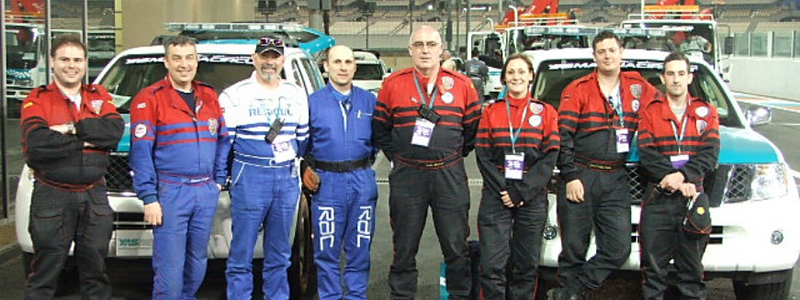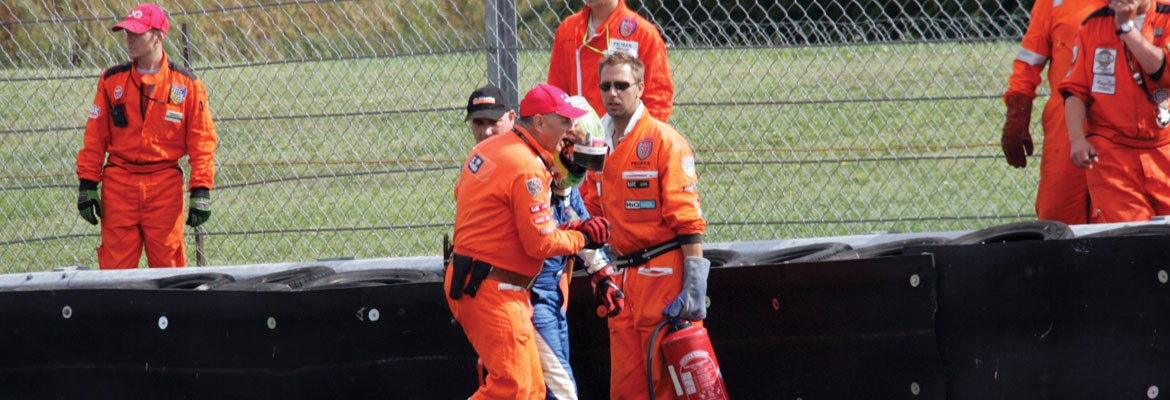
Join a skilled and dedicated team, and get close to the action!
Please contact the Chief Marshal for North West events:
Email: Margaret.simpson190@btinternet.com
Telephone: 01942 217339 (Evenings only)
Please include your full contact details in your email, i.e. your address, phone numbers, e-mail etc. We would like you to join our Team !!
The BARC is pleased to announce a revised and much improved Marshal's Stamp Scheme for 2023. Marshals will gain much improved numbers of stamps for marshalling at North Western Centre meetings that can be redeemed for membership, Dinner Dance tickets and BARC regalia. Details can be found by clicking here - 2023 Marshals Stamp Scheme
If you haven't got either the cash or the desire to be a Motor Sport Competitor, one way of becoming actively involved in Motor Sport is to be a Marshal or Official.
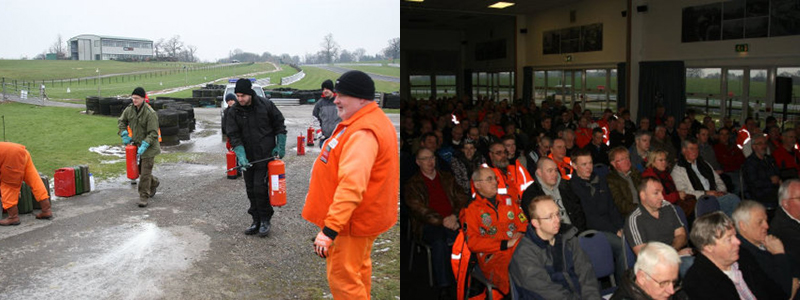
Raw recruits are provided with on-the-job training to a high standard, and are carefully looked after by very experienced and more senior marshals. The annual Marshal Training Days ensure that new recruits receive effective and well structured training, whilst existing marshals look forward to attendance at these training days in order to sharpen up their skills.
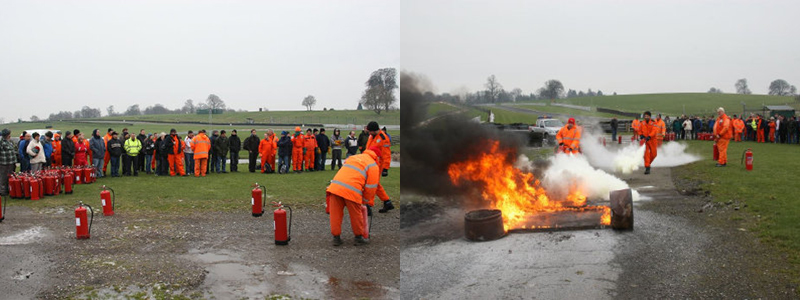
Marshaling as a hobby can be extremely enjoyable, as you can get close to the action and you perform an essential and worthwhile job; in fact without sufficient trained marshals there would be no motor racing at all.
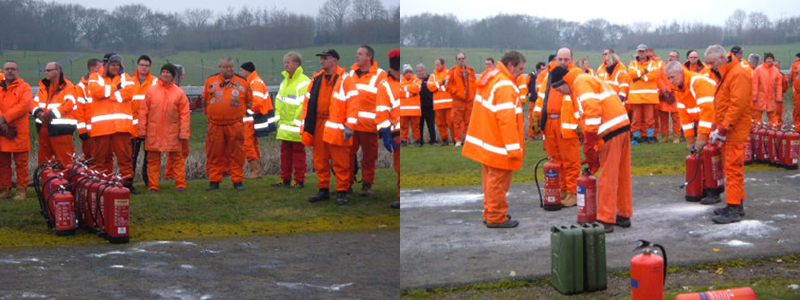
Some of the Officials at Motor Sport Events are licenced or nominated by the MSA, while others are also unpaid enthusiasts who achieve great satisfaction from being involved in the organisation and administration of a successful meeting. Many of them travel the length and breadth of the country officiating at all types of Motor Sport Events, such as race meetings, rallies, hillclimbs and sprints, and in doing so, provide an essential service to the sport.
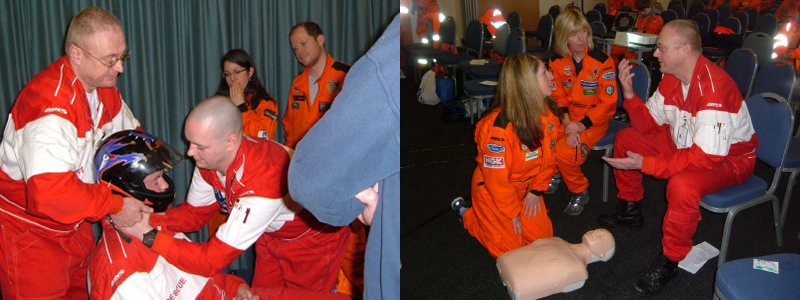
The Rescue unit does about forty five days per year attending events. This includes club meetings, the British Grand Prix and BTCC meetings.
On top of this there are between four and six days training each year. Some of these days are spent in a scrap yard, cutting up crashed cars and a number are spent in the Hyperbaric, Resuscitation and Training Centre on the Wirral acquiring the necessary medical knowledge.
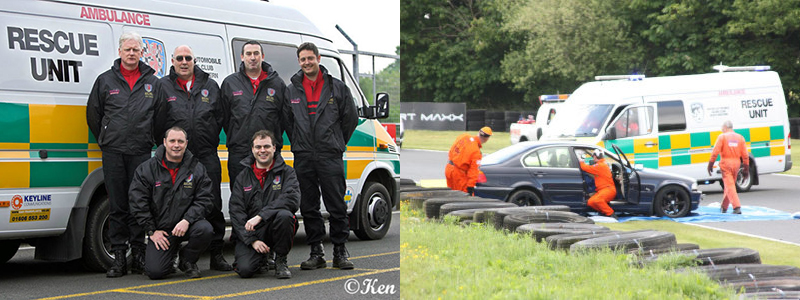
The unit attends all the meetings run by the North Western Centre and as many as can be fitted in for BARC Headquarters. The diary is then filled with events for the BRSCC and any motor club which may request its attendance.
This service is not provided for free, we charge the organising club a daily fee, which goes into the pot, to pay for all the running costs i.e. accommodation, servicing (vehicle and kit), purchasing new equipment and replacing out of date medical stock. We are non-profit making and all money goes into the upkeep of the vehicle and kit.
The crew are volunteers like all marshals and officials. There is a laid down specification for a rescue unit and its crew, which should have a minimum of three crew and cannot operate without a qualified doctor or paramedic. The regulations governing rescue units require the crews to attend a minimum of two training days per year. Also, every three years the unit is assessed by Motorsport UK accredited assessors when the crew is put through a mock rescue scenario and checked for its rescue and medical competence.
Scenes from the Rescue Unit performing extraction training at Oulton Park in 2015 Photographs shown with the kind permission of Colin Oakley
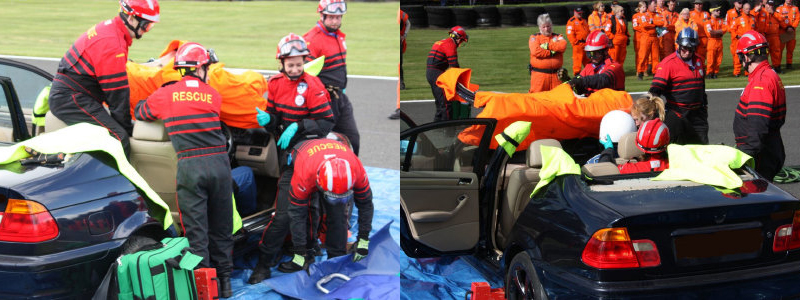
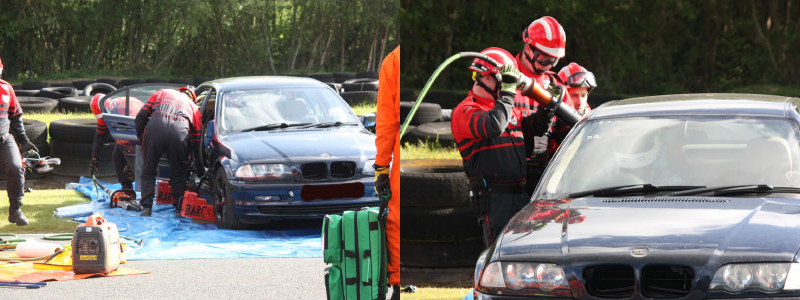
There is a team of ten people available to staff the unit, six normally being used at a time. Crew Chief Colin Whitter organises the bookings, training sessions, servicing of vehicle and equipment and general paperwork. Organisation begins for the next year as soon as the present one finishes and where possible much sooner. Equipment and the van have to be serviced, consumables purchased and new equipment assessed. The majority of meeting dates are available before the end of December and the booking of accommodation for away days starts.
The most typical incident that the Rescue Unit attends at a circuit is where a car has hit the barrier, the race is stopped because the driver is still in the car and drowsy. In most cases the driver will be fine and eventually walk away and thankfully that is it. We call it 'shaken but not stirred'!
One of the nastiest incidents the crew have attended was the Paul Warwick crash at Oulton Park in 1991. No one knows how you are going to react emotionally in such a situation until you actually try it, and over the years Colin has been very impressed with the way the crew has handled incidents involving serious injury in a very professional way.
Then there are incidents like the touring car meeting at Oulton Park in 1999 when Russell Spence went over the barrier at Lodge right in front of where the Unit is stationed.
The Unit has also had some very high profile activity which was seen on TV all over the world when it attended Michael Schumacher's crash at the British Grand Prix in 1999. BARC NW Rescue were also the crew that helped to extricate Adrian Newey from his Ginetta G50 incident at Snetterton in 2010.
The BARC NW Centre Rescue Unit has probably visited every circuit in the country and is very highly regarded by those clubs which hire it for its high standards of competence and presentation.
The crew pose for a photo whilst attending the 2010 Abu Dhabi Australian V8 Supercars ...... they sure get about !!
